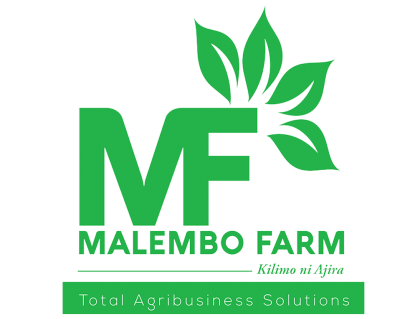My heading is awesome
Lorem ipsum dolor sit amet, at mei dolore tritani repudiandae. In his nemore temporibus consequuntur, vim ad prima vivendum consetetur. Viderer feugiat at pro, mea aperiam
Our short history
Malembo Farm was founded by Mr . Lucas Malembo who started as a farmer back in Mwanza region. The company started its operations in 2015 as a result of of the challenges in agriculture sector employing majority if the population with a decreasiang contributing to the GDP. Africa is having a fast-growing population which entails enough manpower and consumers of agriculture production & products. These is also a growing rate of Governments using a lot of money to import food from outside despite having enough land to produce. it is on these grounds that the founder decide to start the company to develop & consult in Agribusiness in Tanzania and Africa at large.
Our Vision
Our vision was ton be a leader in the advisory, conception and implementation of agriculture projects. with a focus on the estsblishment development and operation of agri-industrial, trading of agricultural product.
Our Mission
Our mission is to contribute to the realisation of the United Nation defined Sustainable Development Goals (SDG’s), especially SDG #2 (Zero Hunger) SDG #5 (Gender Equality), SDG #8 ()Decent work & Economic Growth & SDG#13 (Climate Action). Through private and public sector involvement.
Agriculture Sector in Africa Challenges
Agriculture in Africa has a massive social and economic footprint. More than 60 percent of the population of sub-Sahara Africa comprise of smallholder farmers, with about 23 percent of sub-Saharan Africa ‘s GDP comes from agriculture. YUet Africa’s full agriculture potential remains untapped in a recent analysis, we determined that Africa could produced two to three times more cereals and grains which would add 20percent mare cereal and grains to the current 2.6 billion tons of output. Similar increase could be seen in the seen in the production of horticulture crops and livestock.
Agricultural production and production in the Africa is largely constrained by natural factor, policy and adaption of technologies. These constraints have inhibited the rural economy’s potential onto alleviate poverty employment creation and income generation meet growing food needs driven by rapid population growth and urbanisation to stimulate overall economic growth, given conserve natural resources.
Despite these challenge Africa has a significant irrigation potential that remains unexploited. Irrigation can play an important role in increasing agricultural productivity, expanding area under production and stabilising agricultural production in situation of adverse weather condition.
Unlocking Promises of Africa Agriculture
Investment in agriculture is key for economic growth and job creation among Africa’s farmers, but significant constraints remain before they can fulfil that potential. That’s according to Grow Africa’s Enabling Environment survey.
It found that, while private-sector investors in African agriculture report improvements in the “enabling environment” – the overall factors that allow investment into a country – progress is too slow to unlock the sector’s potent ial to drive economic growth.
Companies were asked to rate their satisfaction with 14 aspects of the enabling environment, report on whether the situation had improved or worsened over the previous year, and indicate the urgency of improvement in each of the 14 areas. Less than half of respondents felt that their country’s enabling environment was conducive to their investment and 64% said it was “very important” that the enabling environment improved enough for them to successfully implement their investment plans.
Africa’s farmers Investment Hurdles
1. Access to finance
Lack of access to affordable finance is consistently cited by private-sector investors within the Grow Africa network as the number one obstacle to implementing projects on the ground.
Only 35% said they could access appropriate finance for their investment. There were more respondents (67%) citing the need for improvement in this area than in any other aspect of the survey. This is also the area in which least improvement was reported – only 13% of respondents said access to finance had improved over the past 12 months.
2. Cross-sector collaboration
Cross-sector collaboration is increasingly recognized as a key component of successfully being able to execute investment commitments. Two-thirds (67%) of respondents recognized that companies cannot overcome specific constraints within value chains and market systems, unless they work with public-sector partners, and they called for improvements in this area.
3. Infrastructure
Dissatisfaction with the quality of physical infrastructure was higher than for any other aspect of the survey, with 55% of respondents saying their needs were not being met. Among the most critical needs cited were access to a stable electricity supply, the ability to transport goods, and public investment in irrigation. Indeed, only 40% of Africans enjoy a reliable electricity supply, a recent report found. This was the second highest priority for improvement according to respondents.
4. Skills
While finding skilled labour came in at number four of the top constraints listed by respondents, it was also one of the areas in which the most companies saw progress, with 29% noting an improvement in their ability to access labour with appropriate skills and experience. Nevertheless, they also noted that:
• Smallholders lack the skills to increase quality
and quantity of production, and the cost of
training is prohibitive for companies.
• Farmer organizations can be poorly managed.
• There is a shortage of commercial managers
to oversee operations.
5. Policies
Among other concerns expressed by respondents was the lack of support by government – only 30% of companies felt that their investment was supported by effective national policies for trade, agriculture and investment.
6. Business Environment
They also cited a lack of efficiency on the part of government – only one-quarter (29%) said that administrative and regulatory formalities were dealt with efficiently, particularly land issues and lack of clarity on land ownership.
Whats is next
In many cases, policies are signed off at regional and sometimes national level, but not implemented consistently, or at all, at a local level. This could be due to lack of administrative capacity, but in some cases, the policies have not been sufficiently anchored with the private sector and not holding a local content perspective.
The governments are paying attention to the need to improve the enabling environment in order to attract private sector investment and development funding as well as expanding the marketing bases based on regional intergrations.
To succeed, three things are needed:
1. Political will of the Government
2. Greater accountability and measurement of progress on agricultural targets.
3. Improved dialogue between ministries and the private sector (PPP & PPD)
4. Efficient use of AfCFTA, Fairtrade, AGOA, and Multi, Bilateral & Private sectors.
Our Core Values
Delivery Excellence
Integrity
Openness
Honesty
Innovativeness
Trustworthy
Creativeness
Respecting Human Rights
Responsible Stewardship
Fostering an environment of collaboration
Meet the Management Team

Dr. Bravious Kahyoza
Policy and Research Director

Mr. David Warioba
Business Development Expert

